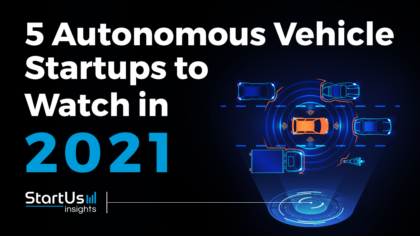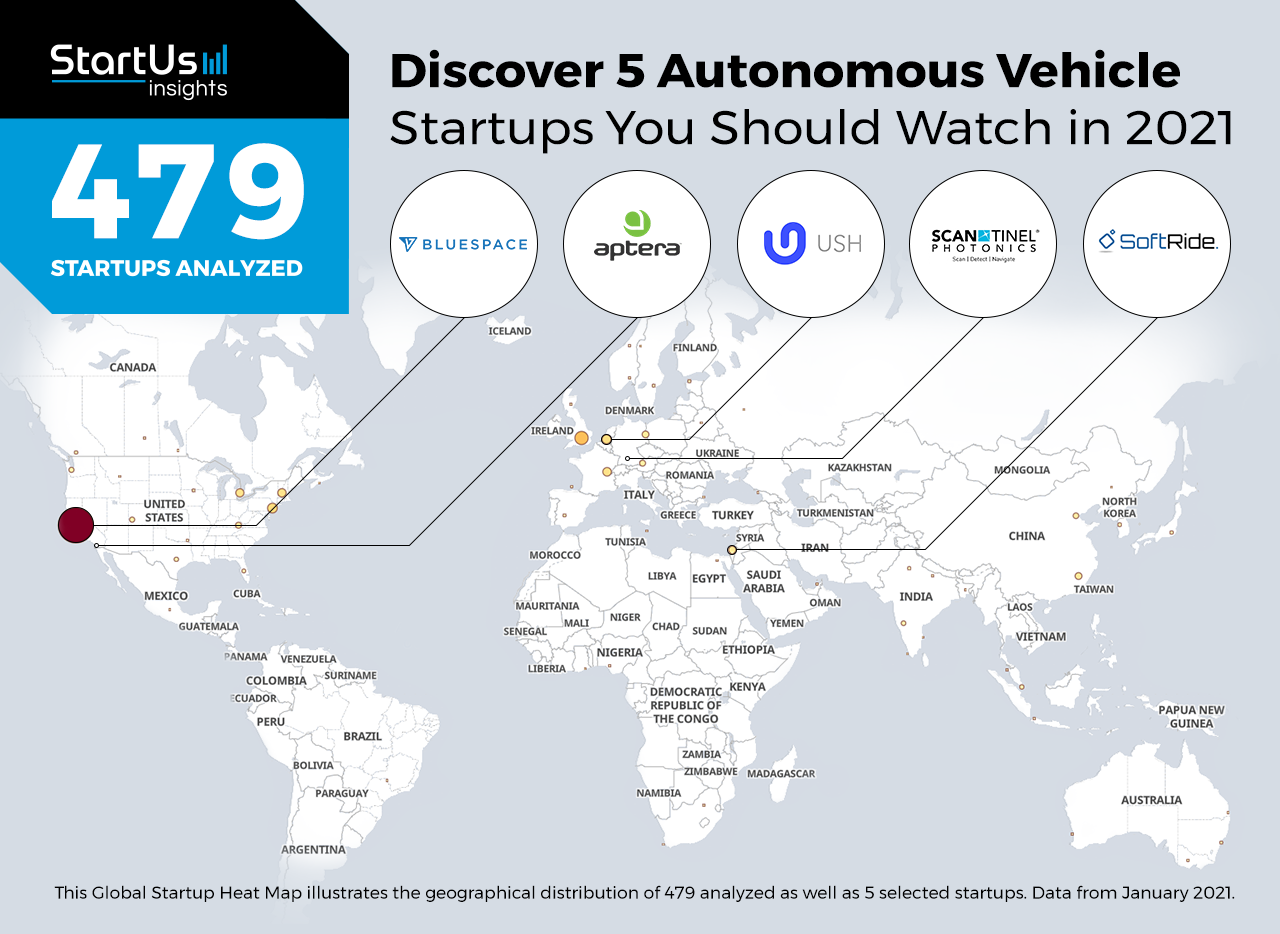Accelerate Productivity in 2025
Reignite Growth Despite the Global Slowdown
Despite the challenges caused by the COVID-19 pandemic and increasing economic uncertainty, new startups are founded every day. To introduce you to 5 recently founded startups, we analyzed 479 autonomous vehicle (AV) startups in total. All of them develop innovative solutions spanning from the production of advanced autonomous vehicles to geofences autonomous driving.
The 5 promising autonomous vehicle startups you should watch in 2021 were hand-picked based on our data-driven startup scouting approach, taking into account factors such as location, founding year, and relevance of technology, among others. The 479 companies that were analyzed for this report are identified using the StartUs Insights Discovery Platform, covering 1.379.000+ startups & scaleups globally. When you are looking for up-to-date autonomous vehicle solutions for your innovation units, R&D, or product development department, the StartUs Insights Discovery Platform gives you the most exhaustive collection and ensures you continuously discover new startups, scaleups, and technologies.
Global Startup Heat Map: 5 Autonomous Vehicle Startups to Watch in 2021
The Global Startup Heat Map below highlights 5 autonomous vehicle startups developing technology-driven solutions for the automotive industry. Moreover, you can explore global hotspots for autonomous vehicle startups and even download this graphic to include in your next presentation.
USH provides Shared and Autonomous Mobility
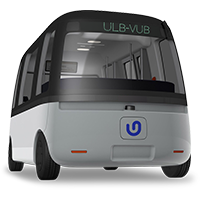 Shared and autonomous mobility services positively impact travel behavior, the environment, and urban growth. By making road transport more efficient, these solutions reducing greenhouse gas emissions from the mobility sector. Shared and autonomous vehicles reduce traffic jams and, subsequently, the number of road accidents. These solutions also facilitate easy access to transportation.
Shared and autonomous mobility services positively impact travel behavior, the environment, and urban growth. By making road transport more efficient, these solutions reducing greenhouse gas emissions from the mobility sector. Shared and autonomous vehicles reduce traffic jams and, subsequently, the number of road accidents. These solutions also facilitate easy access to transportation.
Belgian startup USH provides shared and autonomous mobility services. The startup’s solution finds applications in theme parks, universities, corporates, and cities. The technology minimizes congestion and improves air quality, as well as helps overcome the strong behavioral preferences for single occupancy rides.
Aptera manufactures Solar-Powered Autonomous Vehicles
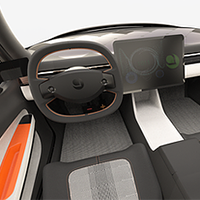 Solar cars combine technologies from the automotive and energy industries. The vehicle chassis features photovoltaic cells and semiconductors that convert solar energy into electricity and make it available for the electric motor. Startups use additive manufacturing technologies and lightweight composite materials for design, enabling efficient utilization of solar power and greater speeds.
Solar cars combine technologies from the automotive and energy industries. The vehicle chassis features photovoltaic cells and semiconductors that convert solar energy into electricity and make it available for the electric motor. Startups use additive manufacturing technologies and lightweight composite materials for design, enabling efficient utilization of solar power and greater speeds.
Aptera is a US-based startup developing a solar-powered level 2 autonomous vehicle. With the startup’s Never Charge technology, electric vehicles run up to 40 miles per day and up to 11,000 miles per year just on solar power. The startup uses additive technologies in manufacturing and the vehicle design facilitates greater speed and longer distances. Aptera’s solar-powered AVs meet most daily driving needs with solar power alone.
SoftRide provides Geofenced Autonomous Driving
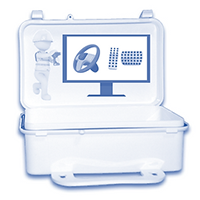 Geofencing using light detection and ranging (LiDAR) technologies creates a virtualized boundary for autonomous vehicles. Among other benefits, geo-fencing offers real-time monitoring and alerts. The technology helps to guide, understand, and detect when cars or machinery leave or enter certain premises.
Geofencing using light detection and ranging (LiDAR) technologies creates a virtualized boundary for autonomous vehicles. Among other benefits, geo-fencing offers real-time monitoring and alerts. The technology helps to guide, understand, and detect when cars or machinery leave or enter certain premises.
SoftRide, an Israeli startup, develops geofencing software for autonomous vehicles. The startup’s vehicle management software makes real-time AV monitoring easy and convenient. It uses LIDAR technologies to create a customized map for the vehicles to move in a designated path. The technology increases productivity in warehouses, helps heavy machinery navigate hazardous routes, and enhances the safety and driving experience for autonomous vehicles.
Scantinel creates LiDAR-based Software
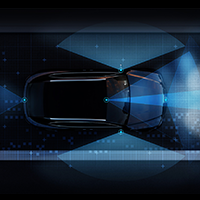 LiDAR technology in autonomous vehicles utilizes a variety of sensors to perceive the vehicle’s surroundings. Advanced control systems interpret the sensory information to identify appropriate paths, obstacles, and relevant signage. The technology finds applications in personal self-driving vehicles, connected vehicle platoons as well as long-distance trucking.
LiDAR technology in autonomous vehicles utilizes a variety of sensors to perceive the vehicle’s surroundings. Advanced control systems interpret the sensory information to identify appropriate paths, obstacles, and relevant signage. The technology finds applications in personal self-driving vehicles, connected vehicle platoons as well as long-distance trucking.
German startup Scantinel creates LiDAR-based software for autonomous vehicles. Scantinel’s LiDAR technology uses photonics to combine coherent range and spectral scanning on a solid-state platform. This enables precise and low-cost detection of the vehicle’s environment in combination with high range and reliability.
BlueSpace develops Autonomous Perception
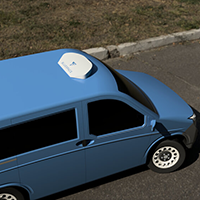 For AVs, a perception platform enables intelligent and adaptive sensing. The perception platform design replicates human vision through a combination of agile LiDAR, fused camera, and artificial intelligence. The technology enables the fusion of cameras and LiDAR to work together ensuring a functional safety system.
For AVs, a perception platform enables intelligent and adaptive sensing. The perception platform design replicates human vision through a combination of agile LiDAR, fused camera, and artificial intelligence. The technology enables the fusion of cameras and LiDAR to work together ensuring a functional safety system.
BlueSpace is a US-based startup that develops a 4D perception device for autonomous vehicles. The device plugs into any autonomous driving software stack and improves perception and prediction functionality. It enables autonomous vehicle designers to use sensors not only to search and detect objects but also to acquire and ultimately classify and track those objects.
What does 2021 bring for Autonomous Vehicles?
To stay ahead of the technology curve, it is important that you know which technologies and industry trends will impact your company in 2021. You can explore our report on the Top 10 Automotive Industry Trends or let us do the work for you. To keep you up-to-date on the latest technology and emerging solutions, we provide you with actionable innovation intelligence – quickly and exhaustively.
